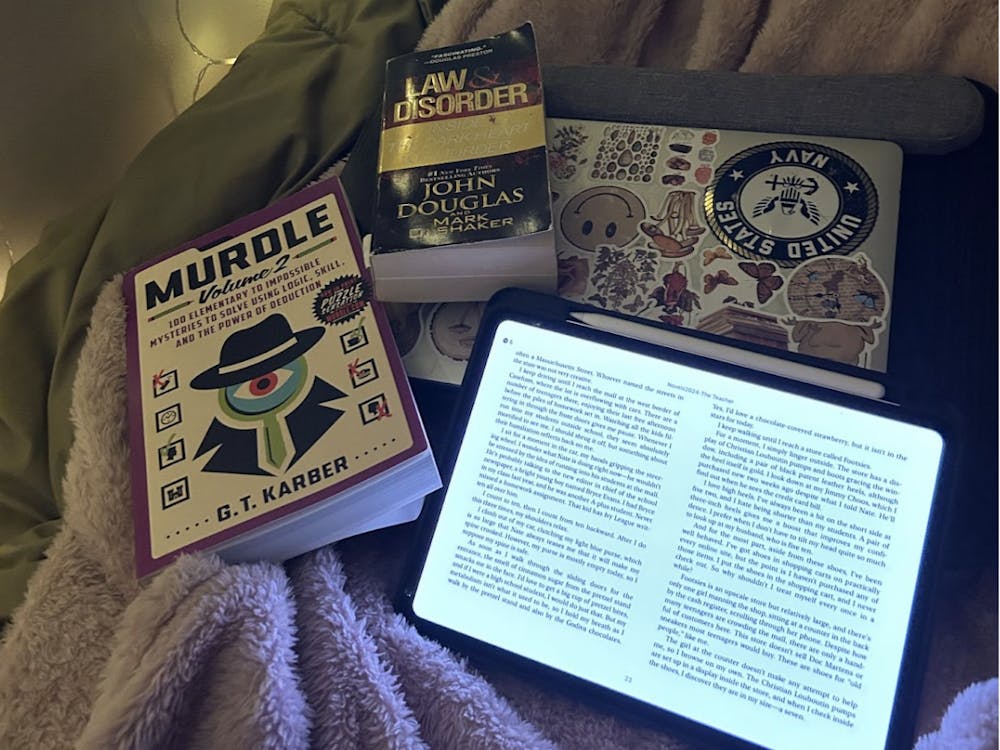Another year is behind us, and with it another Oscar ceremony, full of affluence, excess and the Hollywood system congratulating itself for a job well done (theoretically). Films are praised; films are snubbed; mistakes are made in announcements; paparazzi invent controversies; all in keeping with the great Academy Awards tradition. Following that same tradition, Leonardo DiCaprio once again walks away without one of the coveted gold trophies. The roars of both outrage and laughter from the internet are, as always, deafening.
But was DiCaprio’s top-contender film, The Wolf of Wall Street, really a worthy contender? Theoretically, yes. In the given circumstances, absolutely not.
The Wolf of Wall Street, directed by Martin Scorsese, is, unfortunately, what this reviewer refers to as a “blatant Oscar-bait” movie, the likes of which audiences have come to expect year in and year out. The archetypes are recognizable enough: usually based on a true story, a down-and-out protagonist, insurmountable challenges that are usually surmounted and so forth. Bonus points if the trailer is comprised entirely of sad, quiet music and narration. More bonus points if it addresses a red-letter social or economic issue. And, as far as “blatant Oscar bait” movies go, Wolf falls squarely within the boundaries but sadly does not offer anything compelling.
The film is based on the true story of Jordan Belfort (Dicaprio), the wealthy and extravagant Head of the Stratton Oakmont firm. After losing his original stock broker job early in the film, spending some time poor and jobless, he quickly turns his luck around, getting rich off corrupt and under-the-table dealings in penny stocks, allowing him to open his notable firm. Throughout the film, he rouses, carouses, parties, does copious amounts of drugs and becomes further and further entangled in deals and business ventures that take him increasingly far from the boundaries of the law. As Belfort enjoys his success, the FBI, under agent Patrick Denham (Kyle Chandler), draws ever closer to discovering Belfort’s criminal enterprises.
The story itself is actually decently compelling. It has many interweaving elements and subplots that work very well together. Everything from the criminal investigation to Belfort’s love affairs are handled relatively well, if a bit predictably. The issue with this film is not with the plot itself but rather with the fact that this film does not know what it wants to be. It certainly has plenty of dramatic elements featuring characters ripe with conflicts and personal issues. It builds up huge amounts of tension at times as well. Every scene with the FBI feels as though it could have been taken straight from a television crime drama. Then there are the moments clearly meant to keep the film lighthearted. The director might have thought that “drugs equal comedy” and was unfortunately quite mistaken.
The end result is a film whose elements are so muddled and diluted that it becomes impossible to tell what the film is meant to be. It is too light for a drama, not funny enough for a comedy and not insightful enough for a meaningful historical piece. My best guess is that it is a comedy, and that is only because it made me laugh about as much as most bad comedies do.
The film commits the biggest sin that a “blatant Oscar Bait” movie can commit (and, sadly, one that almost all of them do): It relies on its subject matter to make it compelling. Unfortunately, unlike others of the pseudo-genre, that just is not enough to carry the day, here.
This is not to say the film itself is bad, though. Actually, far from it. It is simply a bad comedy. On other fronts, the film fares much better. Dicaprio’s portrayal of Belfort is inspired, to say the very least, bringing both the charisma of Jay Gatsby and the ruthlessness of Edward Daniels. Other performers include Jonah Hill as Donnie Azolf, Belfort’s close friend and accomplice, Margot Robbie as Naomi, Belfort’s second wife, among many others too numerous to mention. The cast is incredibly large, but very well handled: It is simple — for the most part — to keep the large cast of characters straight, as each bring their own distinct quirks, stories and personalities. As skillfully as the characters are handled, however, their abundance only compounds the muddled feeling of the film as, again, there is simply too much going on.
Visually, the film is nice, but nothing revolutionary. It is based in modern New York City, which while easy to capture accurately, is not particularly mind-blowing. As well as it can be presented, the scenery just appears normal, if affluent, in keeping with the wealthy characters. The soundtrack, similarly, is passable but forgettable.
Audiences certainly will not be walking out of the theater humming any pieces from the score, assuming they remember them at all.
In the end, The Wolf of Wall Street ends up being the only thing worse than a bad movie: a lukewarm one. One that does nothing particularly well or poorly and so just ends up “existing.” I have to agree with the Academy on this one. If you want to watch a film that has blatantly been made for the sole purpose of winning Oscars, watch 12 Years a Slave. You will definitely enjoy yourself more.
Overall Rating: 3/5




